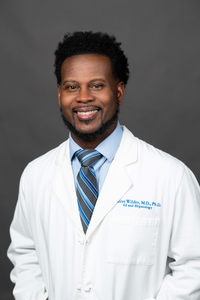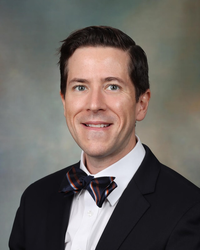Advancing Diversity, Equity, and Inclusion in Hepatology: New Challenges and Strategies for LGBTQ+ and Underrepresented Minority Communities
Nov
10
2025
Convention Center: Salon GH, Level 1
9:45 AM
- 10:45 AM
World Class Speakers
Description
Recognizing the ongoing challenges faced by LGBTQ+ individuals and underrepresented minorities (URMs) in health care, particularly amidst recent shifts in funding, policy, and societal attitudes, this community conversation session aims to address systemic barriers contributing to disparities in health care access and outcomes for these populations. The session highlights specific challenges, such as how changes in funding and policies may impact diversity, equity, and inclusion (DEI) initiatives in academic and health care settings. Strategies to sustain and enhance diverse workforce recruitment despite evolving regulations and restrictions are explored. Panelists also address new challenges facing LGBTQ+ patients and health care practitioners, including barriers to accessing equitable liver care and the broader implications of these obstacles on their health and well-being. By bringing together DEI leaders from academic institutions and frontline health care workers, this conversation seeks to identify practical solutions that ensure ongoing support for LGBTQ+ and URM individuals as both patients and health care practitioners. The ultimate goal is to foster a more inclusive hepatology community where diversity is not only acknowledged but celebrated, ensuring equitable health care delivery and professional opportunities for all.Presentations
9:45 AM
- 10:00 AM
Nov
10
2025
Washington, D.C.
Building Bridges: Advancing Diversity, Equity, and Inclusion Inside and Outside of the American Association for the Study of Liver Diseases
Saikiran M Kilaru, MD
, Presenter
Acute Liver Failure
Acute-on-Chronic Liver Failure
ALD
Cirrhosis and Portal Hypertension
DEI
Drug-Induced Liver Injury
Hepatitis
Hepatology Associates
Liver Cancer
MASLD
Pediatrics
Trainee
Transplant
10:00 AM
- 10:15 AM
Nov
10
2025
Washington, D.C.
Diversity, Equity, and Inclusion: New Challenges, Strategies, and Opportunities
Julius M Wilder, MD, PhD
, Presenter
Acute Liver Failure
Acute-on-Chronic Liver Failure
ALD
Cirrhosis and Portal Hypertension
DEI
Drug-Induced Liver Injury
Hepatitis
Hepatology Associates
Liver Cancer
MASLD
Pediatrics
Trainee
Transplant
10:15 AM
- 10:30 AM
Nov
10
2025
Washington, D.C.
Meeting Patients Where They Are: How to Communicate and Support People With Minority Identities
Jessica Wisocky, NP-C
, Presenter
Acute Liver Failure
Acute-on-Chronic Liver Failure
ALD
Cirrhosis and Portal Hypertension
DEI
Drug-Induced Liver Injury
Hepatitis
Hepatology Associates
Liver Cancer
MASLD
Pediatrics
Trainee
Transplant
Objectives
- Review the ongoing and emerging challenges faced by LGBTQ+ and underrepresented minority (URM) patients, emphasizing strategies to deliver equitable, culturally competent care within a shifting health care landscape.
- Assess how recent changes in funding and policy affect diversity, equity, and inclusion (DEI) efforts in hepatology and identify strategies to sustain impactful diversity initiatives in academic and health care settings.
- Discuss practical approaches to recruit and support URM and LGBTQ+ trainees and clinicians, fostering a diverse and inclusive workforce in hepatology despite evolving recruitment challenges.








